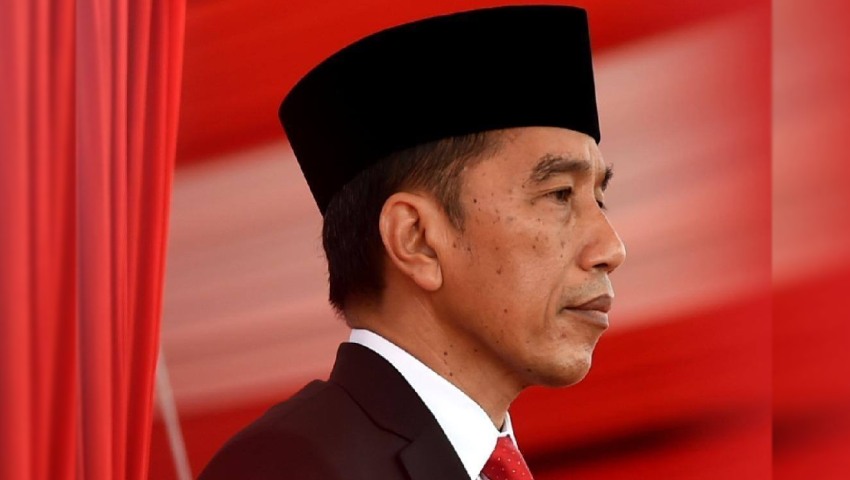Has the signing of a defence agreement between Jakarta and Tokyo signalled a shift in Indonesia’s foreign policy strategy?
To continue reading the rest of this article, please log in.
Create free account to get unlimited news articles and more!
Earlier this month, Indonesian Foreign Minister Retno Marsudi, Trade Minister Muhammad Lutfi, and State-Owned Enterprises Minister Erick Thohir met with Chinese Foreign Minister Wang Yi in Namping, Fujian Province. This followed Minister Retno and Defence Minister Prabowo Subianto’s visit to Tokyo just days earlier for a meeting with their Japanese counterparts.
According to David Engel, head of the Australian Strategic Policy Institute’s (ASPI) Indonesia program, the visits epitomised Indonesia’s ‘free and active’ foreign policy strategy, which emphasises regional neutrality.
However, Engel notes that the visit to Tokyo seemed to be “more substantial”, with the parties agreeing to the transfer of Japanese defence materiel and technology, signed by Prabowo and Japanese Defence Minister Nobuo Kishi.
The counterparts also discussed the importance of ‘freedom of overflight and navigation’, the rule of international law in resolving regional disputes, and the evolving political situation in Myanmar.
But Engel observes that the defence agreement was “by far the most important deliverable”.
“While its specifics are still sketchy, the official releases by the respective ministries point to a tangible increase in the level of defence and security co-operation between Tokyo and Jakarta, including formalities like more senior-level visits and dialogues, education and training, bilateral and multilateral exercises, and commitments to explore ‘defence equipment and technology co-operation’,” he writes.
“It represents the latest of a handful of such accords permitting Japanese defence exports that Tokyo has inked with ASEAN partners and just the 10th such agreement that Japan has signed with other nations.”
However, Engel casts doubt over the significance of the agreement, noting Indonesia’s “flawed history of defence procurement”.
The ASPI analyst goes on to note the benefits of the agreement, which he said would boost Indonesia’s defence capabilities amid Chinese ‘misbehaviour” in the exclusive economic zone off its Natuna Islands.
“[This] has aroused Jakarta’s anxieties enough to spark its interest in strengthening its naval posture in the region, and Japan’s maritime domain awareness technologies, including advanced radars and surveillance equipment, would help do just that,” he adds.
“So too would several modern frigates, which appear to be on Prabowo’s shopping list.”
Engel said the deal would also help realise Japan and its allies’ (including Australia) goal of a ‘free and open Indo-Pacific region’, helping to “withstand Chinese coercion” in the international waterways.
“As the region’s largest and prospectively most powerful state, Indonesia is a critical part of this dynamic,” he observes.
Moreover, Engel claims that for Indonesia, closer ties with Japan would score political points, enabling Jakarta to build resilience to China without having to mend its chequered relationship with Washington.
Meanwhile, reflecting on the meeting between Indonesian officials and Chinese Foreign Minister Wang Yi, Engel argues that the most significant aspect of the meeting was the “optics”, with discussions largely focusing on Myanmar, economic cooperation, and other bilateral issues.
According to Engel, despite Jakarta’s commitment to bolstering defence ties with Japan, the ministry’s visit to China suggests that Indonesian President Joko Widodo remains tethered to his neutrality policy.
“[The] visit’s temporal proximity to the Tokyo talks signalled that Widodo’s Indonesia has no intention of deviating one iota from its ‘free and active’ doctrine, which precludes alignment with anybody,” he writes.
“The audience for that signal was as much domestic as international, directed at those for whom the doctrine remains a sacrosanct expression of Indonesia’s post-colonial identity.
“Japan, however, which has already experienced the Widodo administration’s questionable dealings with it vis-à-vis China on infrastructure projects, could be excused for wondering about how adroit Retno’s practice of the doctrine was and how reliable a strategic partner Indonesia can be.”
Engel concludes that the agreement between Jakarta and Tokyo may still be an important step in Indonesia’s journey towards becoming a “power capable of deterring China’s more egregious challenges to its sovereignty”, but notes that it would take much more to “convert Indonesia’s defence forces into such a deterrent”.
“Inter alia, it will also need a clear-eyed re-assessment of whether a foreign policy premised on rigid non-alignment and aspirations for ‘cooperation’ irrespective of the actions of other parties remains as fit for purpose in the years ahead as it might once have been,” he writes.
Get involved with the discussion and let us know your thoughts on Australia's future role and position in the Indo-Pacific region and what you would like to see from Australia's political leaders in terms of partisan and bipartisan agenda setting in the comments section below, or get in touch with

 Login
Login







